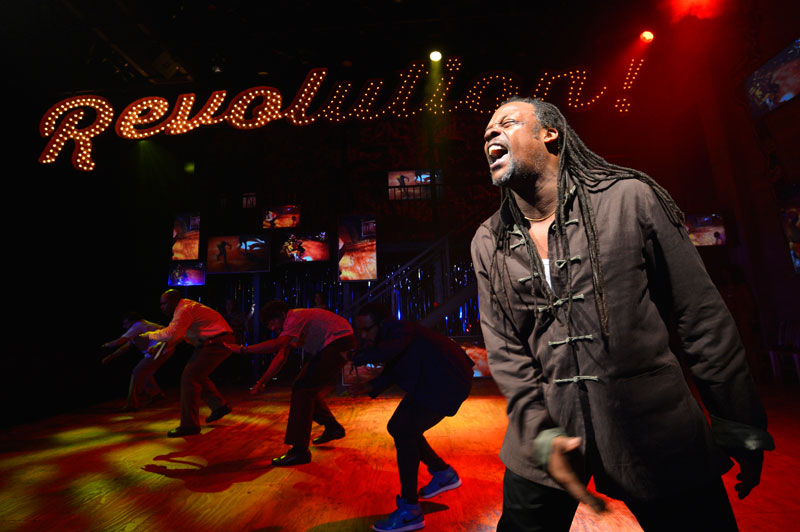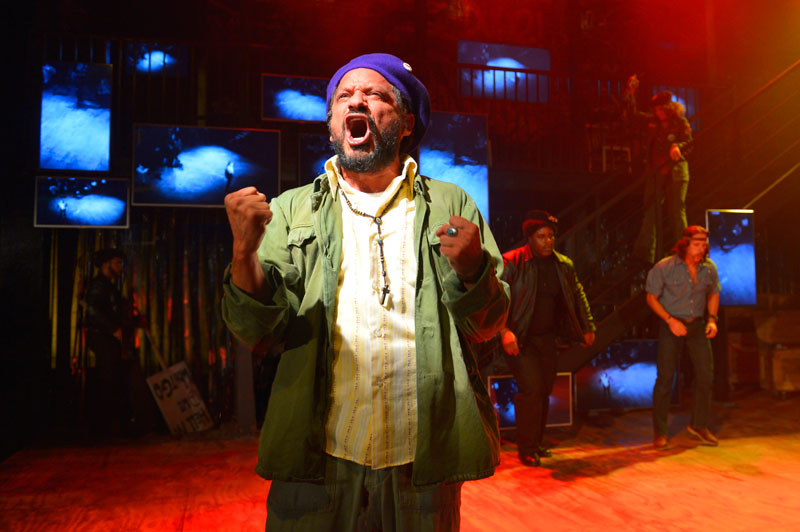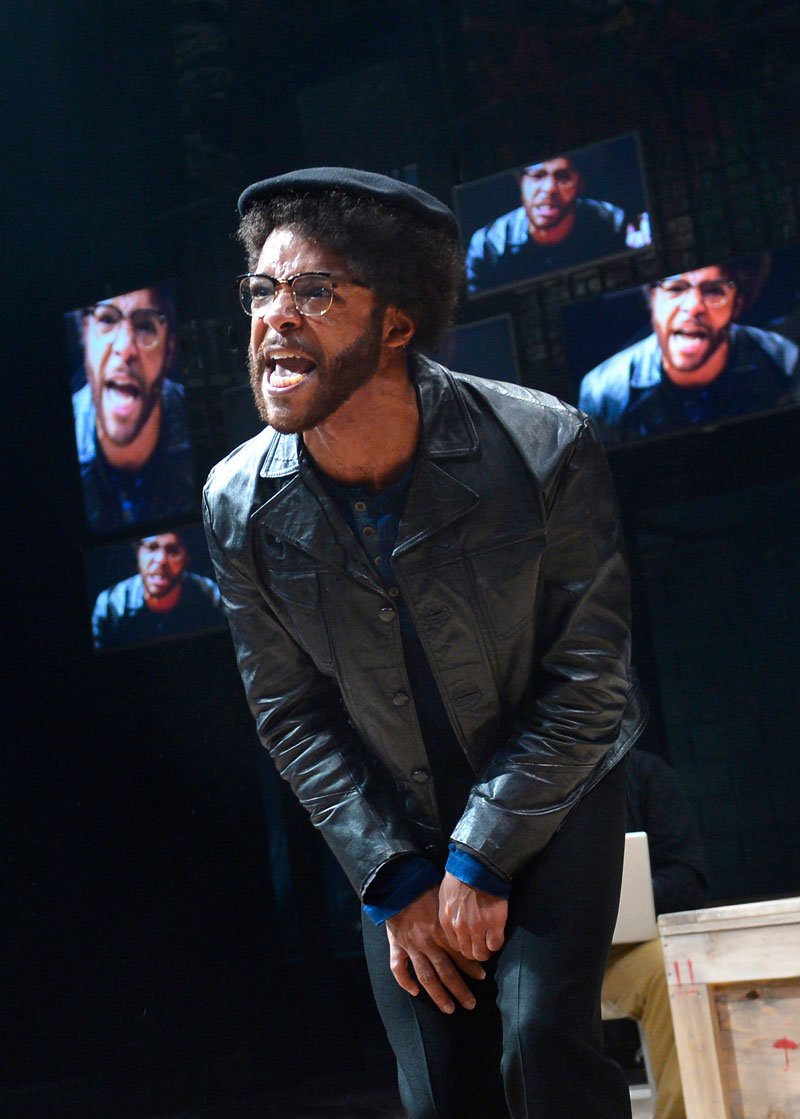When old revolutionary firebrands get together after a long time, you can expect some sparks to fly. That’s certainly the case in Party People, the play by New York theater trio UNIVERSES now playing at the Berkeley Repertory Theatre. Members of the Black Panther Party and their Puerto Rican counterpart from the 1960s, the Young Lords Party, are brought together decades later by members of the next generation — a couple of self-styled artists creating a happening that’s part photo exhibit, part video installation, part performance and part reunion party. But the radicals went their separate ways for a reason all those years ago, and seeing each other again brings up all kinds of unfinished business and battle scars. And the young political dilettantes’ cluelessness about what it’s like to put your life on the line to fight for your rights brings tensions even higher.
Though Party People was commissioned by the Oregon Shakespeare Festival as part of its American Revolutions: The United States History Cycle (the same series that gave us American Night at California Shakespeare Theater and Ghost Light at Berkeley Rep) and premiered in Ashland in 2012, its Berkeley run could be considered a homecoming. The play was developed in the Rep’s new works program, the Ground Floor, and it’s been directed all along by the theater’s new associate director, Liesl Tommy. But more to the point, the Black Panther Party started in Oakland, so it’s really about hometown history — at least in part.
Oddly enough, the local angle is hardly even mentioned in the play itself. I’m not sure it’s ever established where the story’s set, but it definitely has a New York downtown vibe, and not at all a Bay Area one.

Marcus Doshi’s two-story set features a striking upper level of brick walls painted with a Black Panther graffiti-style mural, while the ground floor is oddly backed by a chintzy tinsel curtain. A giant sign reading “Revolution!” hangs high above the stage in lighted cursive letters. Hanging all over are screens showing Alexander V. Nichols’ video of what’s going on onstage from various angles.
As played by Christopher Livingston, young filmmaker and “Panther cub” Malik comes off more like Mark from Rent than a young Spike Lee. But as risible as it is when he talks about practicing his defiant scowl in the mirror as a wannabe revolutionary, his account of trying to connect with and live up to his long-incarcerated Black Panther father is touching. “I’ve got a prison-industrial complex—I can’t shake it,” Malik says.



